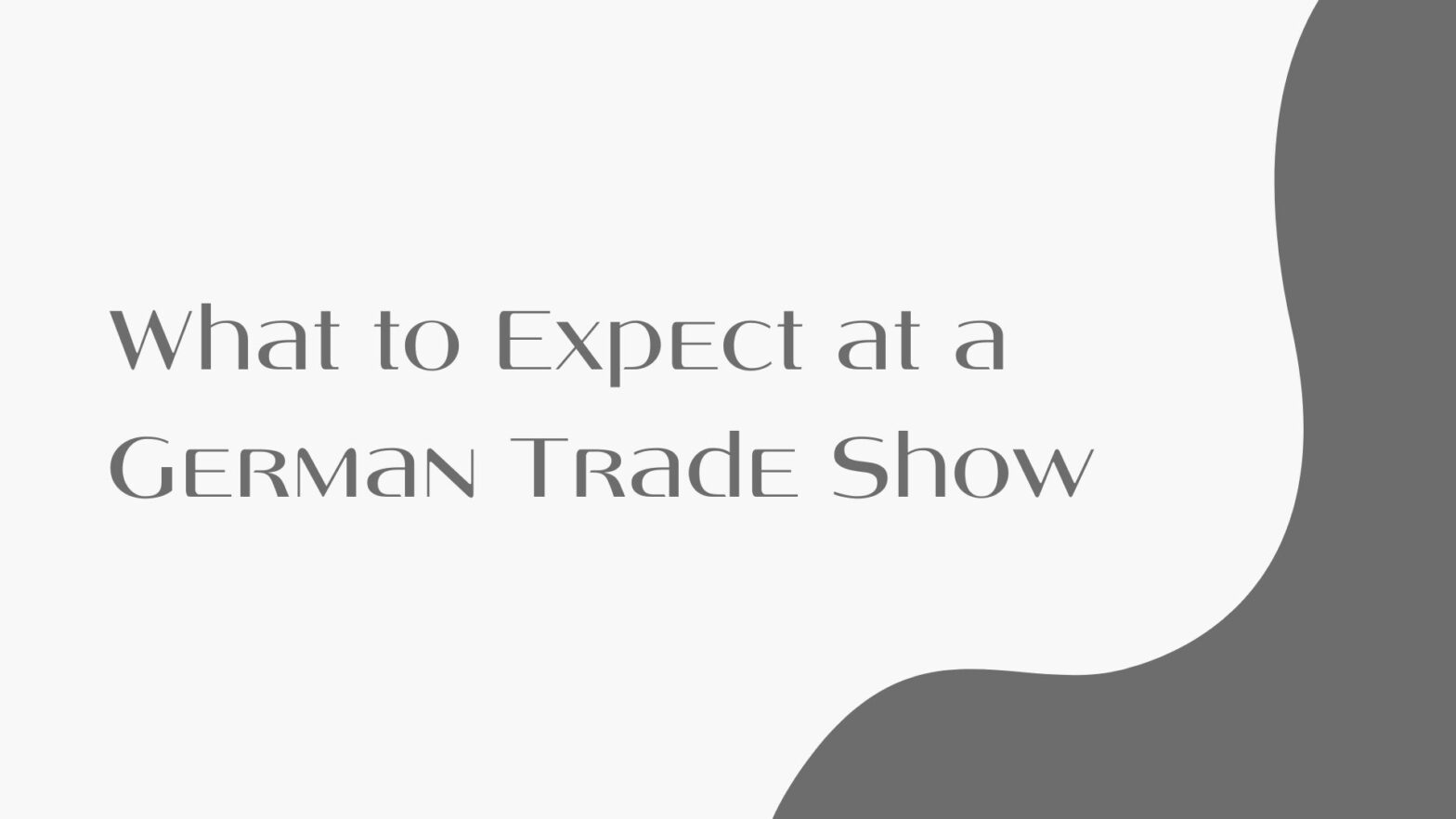Germany hosts a large number of international trade shows. These are important, if not leading, industry events at which major players and smaller companies congregate. They are focused on B2B business.
I found that many of my Canadian clients just didn’t know what to expect at a trade show in Germany. Thus they arrived completely unprepared and surely missed some business opportunities.
This is the first of a short series of articles about trade shows in Germany. The others deal with the cost of exhibiting at a trade show, discuss whether to exhibit or just walk a show, and make some suggestions for doing business at a show.
Note: I have never attended a trade show outside of Germany so I cannot draw any direct comparisons.
What is a „Messe“?
The term „Messe“ has two meanings in German: on the one hand, it is the word for a trade show or trade fair. On the other hand, it signifies the physical space where that event takes place. In this case, „Messe“ is short for „Messegelände“.
For instance, „Kölnmesse“ are the trade-show grounds in Cologne (as well as the name of the company operating those facilities).
„Hannover Messe“, on the other hand, does not refer to the trade-show grounds in Hannover, but to the world’s leading industry show.
Yes, it’s confusing, for Germans as well.
How to Find Your Messe
There are so many shows in Germany that it’s hard to keep track. AUMA – Association of the German Trade Fair Industry has a searchable database.
B2B Trade Show vs. Public Show
There are two types of shows that are both called „Messe“: Fachmesse and Publikumsmesse.
Fachmesse – B2B
A Fachmesse is a B2B industry event that is only open to industry visitors. This means your visitors will be more focused and most likely from all over the world. You can take orders and (depending on your product) hand out samples, but you cannot make any direct sales.
For instance, if you are an exhibitor at ProWein, of course you can offer wine tastings, but if someone really likes your Chardonnay, you cannot sell them two bottles to take home.
At some shows, visitors will even undergo mandatory bag searches as they leave the space.
Depending on your product, there is also a tax/ customs component involved here. If you bring goods from outside of the EU into the EU for the purposes of exhibiting at a trade show, you are expected to take them back out of the EU after the show. If you don’t, you will become liable for import VAT/ customs duties.
I am not sure how this is handled with, per my example above, consumables such as food. But if you arrive at the German border with, say, fifty bicylces to show at Eurobike, and you leave with only thirty, German customs will assume you have sold the other twenty.
Publikumsmesse – D2C
A Publikumsmesse is open to the general public. These shows are usually for consumer (designer) products or hobby/ sports/ travel. Visitors will be mostly local, hugely interested in samples, and they can and often will shop. You may encounter a few industry professionals, but don’t count on it. Exhibiting at a show for the general public can be a good way to introduce your product to potential end customers and to test the market. You will definitely need to have German-speaking staff on your booth.
Some shows mix the concepts by splitting between Industry Days and Public Days. On the former, only accredited visitors are admitted; on the latter, anyone can come. Examples for such shows are Frankfurt Book Fair, Eurobike, or Gamescom.
Trade Shows Are Big
Another thing I often heard from my clients was, „I had no idea this was going to be so big!“
Most trade shows in Germany are HUGE and bustling. Most shows will indicate the previous year’s visitor count on their website – it’s one way to attract exhibitors. For instance, Hannover Messe 2023 had 4,000 exhibitors and more than 130,000 visitors.
If in doubt, go the show’s website and find their hall plan. This is often filed in the „For Visitors“ tab. It will show you how much space the show is going to occupy. Also try and find exhibitor’s directories from previous shows for an idea of who exhibited.
Trade Show Visitors
With only a few exceptions, trade shows in Germany are international events. In fact, they are often the leading global show for a particular industry. As a consequence, visitors from all over the world are in attendance.
Many of my Canadian clients were astonished by this. They thought „show in Germany = all German visitors“. Instead, they would speak to visitors from 20 countries before the first German even arrived at their booth.
So keep an open mind! Sometimes business opportunities present themselves where you had least expected them.
Trade Show Conference
Many trade shows come with a conference component. Often one or more stages are set up somewhere in an exhibition hall, where a range of speakers presents on relevant topics. Landing a speaking slot can give you added visibility, though in all honesty, most people go to a show to have meetings and see products, not to hear talks. Even if they are interested in the program, they may be too busy with their meeting schedule.
